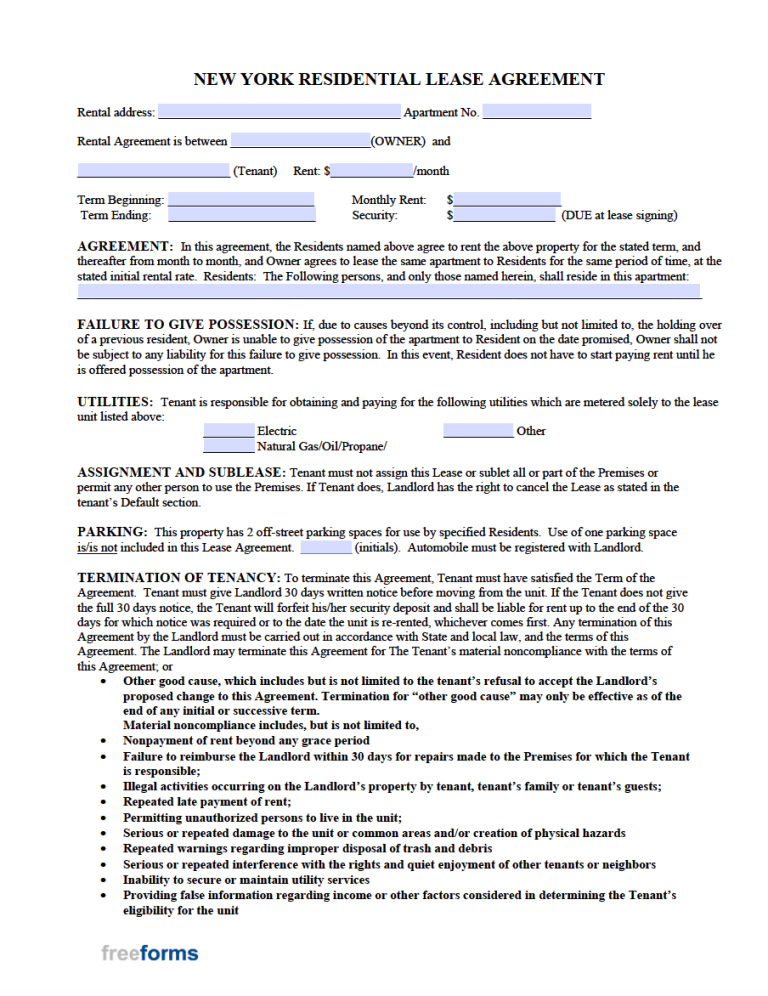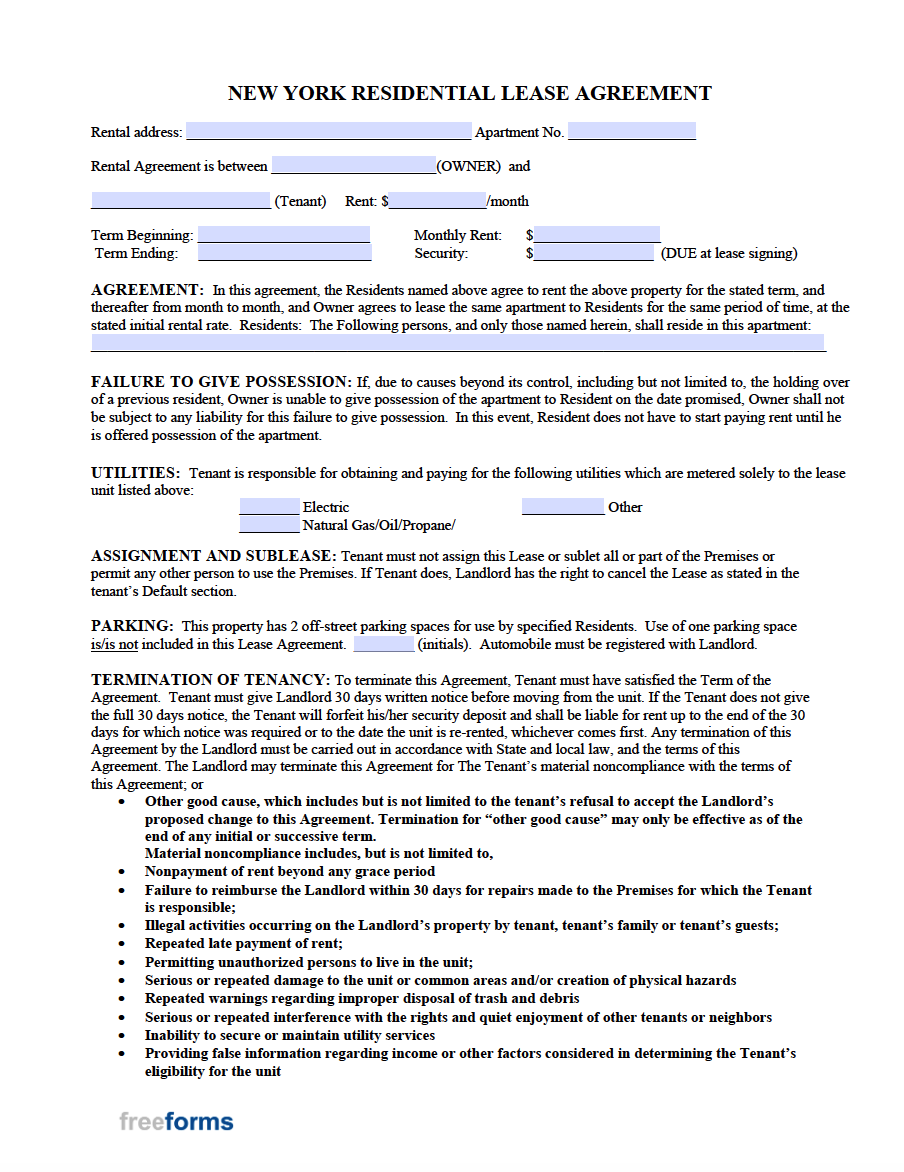Rental Application – A vastly utilized document in the rental world, this application can be presented to those wishing to lease a house, condo, apartment, etc. for the purpose of assessing their credibility as a tenant.
Lease Agreements By Type
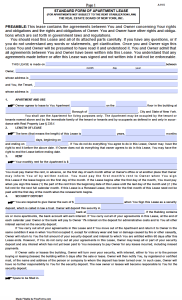 Apartment Lease Agreement – As the main lease agreement posted at the top of this page can be used for various types of rental properties, this form is exclusively dedicated to the leasing of apartments.
Apartment Lease Agreement – As the main lease agreement posted at the top of this page can be used for various types of rental properties, this form is exclusively dedicated to the leasing of apartments.
Download: PDF
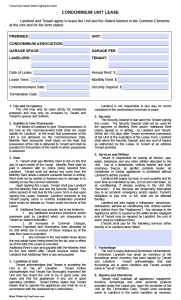 Condominium Lease Agreement – If the rental property is a condo, this form can be implemented as it specifically applies to this type of unit.
Condominium Lease Agreement – If the rental property is a condo, this form can be implemented as it specifically applies to this type of unit.
Download: PDF
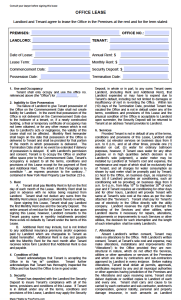 Commercial Lease Agreement (for Office Space) – Forms a register incorporating terms to the lease for a property to be utilized as an office.
Commercial Lease Agreement (for Office Space) – Forms a register incorporating terms to the lease for a property to be utilized as an office.
Download: PDF
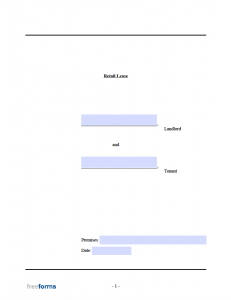 Commercial Lease Agreement (for Retail) – A company that sells goods can carry out this document to lease space that accommodates their needs.
Commercial Lease Agreement (for Retail) – A company that sells goods can carry out this document to lease space that accommodates their needs.
Download: PDF, Word (.docx)
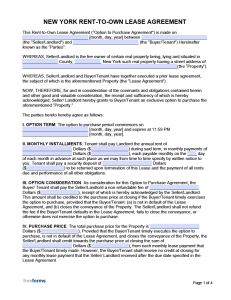 Lease to Own Agreement – Constructs a real estate lease contract with a separate clause that offers the option to purchase the residence upon the end of the term.
Lease to Own Agreement – Constructs a real estate lease contract with a separate clause that offers the option to purchase the residence upon the end of the term.
Download: PDF, Word (.docx)
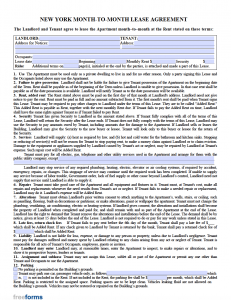 Month-to-Month Lease – Initiates an agreement to rent a domicile for a designated duration with an opportunity for the lessor or lessee to opt-out prematurely with advance thirty (30) day announcement to terminate.
Month-to-Month Lease – Initiates an agreement to rent a domicile for a designated duration with an opportunity for the lessor or lessee to opt-out prematurely with advance thirty (30) day announcement to terminate.
Download: PDF
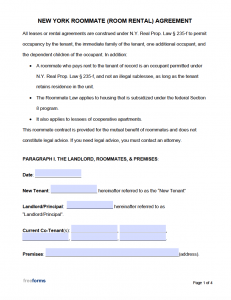 Roommate Agreement – Consists of a legal document detailing the specifics involved with renting a private space within a dwelling for an agreed-upon compensation.
Roommate Agreement – Consists of a legal document detailing the specifics involved with renting a private space within a dwelling for an agreed-upon compensation.
Download: PDF, Word (.docx)
Standard Lease Agreement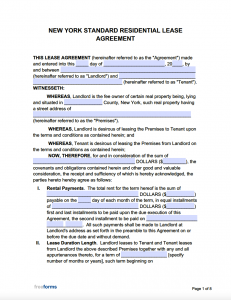 – An administrative tool used to record the particulars of a leasing arrangement for a residential piece of real estate
– An administrative tool used to record the particulars of a leasing arrangement for a residential piece of real estate
Download: PDF, Word (.docx)
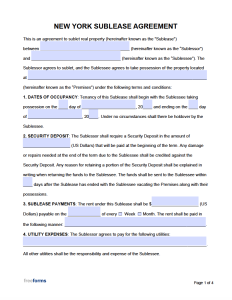 Sublease Agreement – Engenders an arrangement for a tenant to sublease to a separate individual for a stipulated duration and financial sum.
Sublease Agreement – Engenders an arrangement for a tenant to sublease to a separate individual for a stipulated duration and financial sum.
Download: PDF, Word (.docx)
Additional Forms
Exclusive Right to Lease Agreement – Owners seeking to hire the expertise of an agent to rent out their property may enter into this contract to hold both parties accountable for the terms of the relationship.
Window Guard Rider – Residents of New York City are required to have window guards installed in their apartment if a minor that is ten (10) years old or younger lives on the premises. This document should be furnished to all tenants for the purpose of gaining certain information regarding this rule.
Landlord-Tenant Laws
Listed below are a summary of laws and disclosures pertinent to leasing a property in the state of New York. For a more in-depth examination of the legal implications surrounding the lessee/lessor relationship, you can browse the Consolidated Laws of New York on Real Property.
Required Landlord Disclosures
Identification of the Landlord or Authorized Personel (Tenants’ Rights Guide) – The language included within the leasing paperwork must include the names and addresses of the owner and managing agents for the property.
Lead-Based Paint (42 U.S. Code § 4852d) – Constructed buildings assembled before 1979 will present the obligation to inform tenants about the possibility of coming in contact with lead-based paint. Potential risks and symptoms associated with exposure are to be brought to the attention of the lessee before signing the lease.
Delivery of Signed Lease Agreement (Tenants’ Rights Guide) – Upon executing the written leasing document, the landlord has a total of thirty-one (31) days to send an endorsed copy to the tenant for retention of the record.
Receipt of Security Deposit (§ 7-103) – After acceptance and deposit of earnest money, the owner of the leased property is obligated to inform the tenant of its location. A statement disclosing the name and address of the financial institution, and the amount of the deposit is to be sent to the lessee.
Window Guard Requirement Form (NYC HC §12) – Dwellings located in New York City will pose an additional mandate for the landlord to provide window guards for tenants living with children under the age of eleven (11). A city form is implemented to notify the tenant and apply signatures upon acceptance.
Bed Bug Infestation History Report (NYC § 69-27-2018.2) – For real estate situated within the boundaries of New York City, the landlord must furnish a standard written account of any past property issues involving bedbugs on the premises. The statement will detail any problems with the subject pest in the building within the last 12 months.
Security Deposit Upon Transfer of Property (§ 7-105) – Should an owner sell or relinquish property to another individual or entity, notification of the resulting transfer of security deposit must be made to the tenant. Once the transfer has occurred, the lessor has five (5) days to submit evidence of the new assignment to the lessee.
When is Rent Late?
The regulatory legislature does not mention any specified period in which rent can be paid late and lawfully avoid a late charge. Owners requesting a separate fee on late payments must indicate the provision within the lease agreement for it to be acknowledged.
Late Fees
A maximum amount is not established that can be levied upon an individual that pays rent past the due date. Any late fee demanded by the owner must be conveyed in the leasing contract to be a legitimate claim.
NSF Checks
When rental payments are dispatched with a check, and the check is returned for inadequate account funding a fee can be charged if stipulated in the lease. $20 per instance is the most a property owner can charge beyond bank fees incurred at the point of deposit (§ 5-328).
Security Deposit Maximum
An owner has the right to ask for a security deposit amount that they see fit for each individual property. There is no marked limitation on the amount that can be requested.
Security Deposit Return
New York law does not explicitly set a precedent as to when the reimbursement of the security deposit should be issued. It should be returned within a “reasonable” amount of time cited from the Tenants’ Rights Guide, distributed by the State Attorney General. It is suggested to remit the remainder of the deposit, after deducting any necessary repair costs, within 3-6 weeks from the date of lease-end.
Landlord’s Entry
Regulatory code of New York does not pinpoint an exact amount of time that should be allotted to the tenant for an owner to gain access to the rented residence. It is customary to give advanced notice of at least twenty-four (24) hours before entering for necessary maintenance. Entry without notice is allowed in the case of emergencies.


